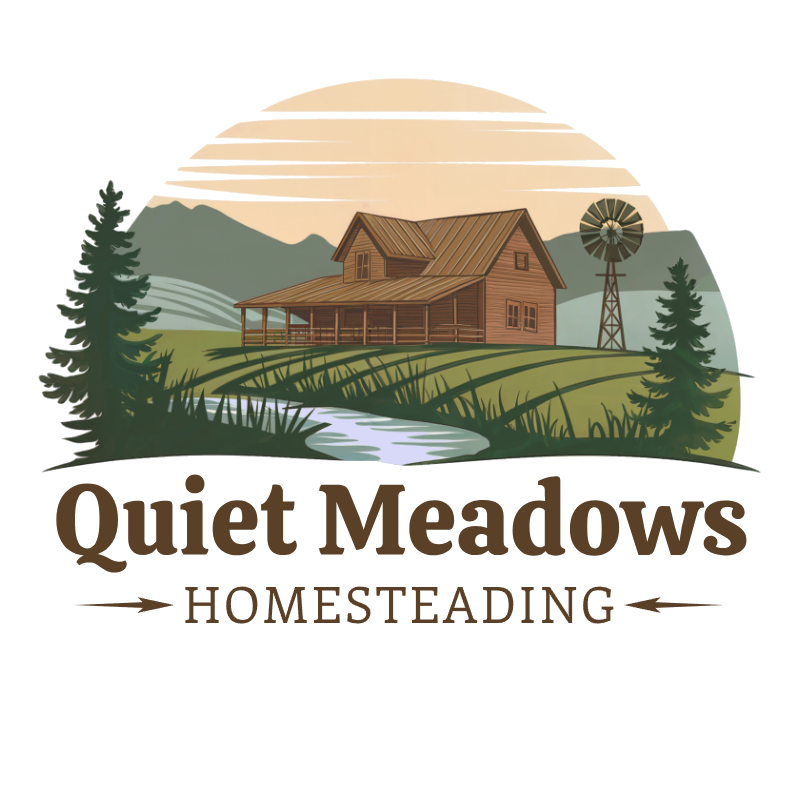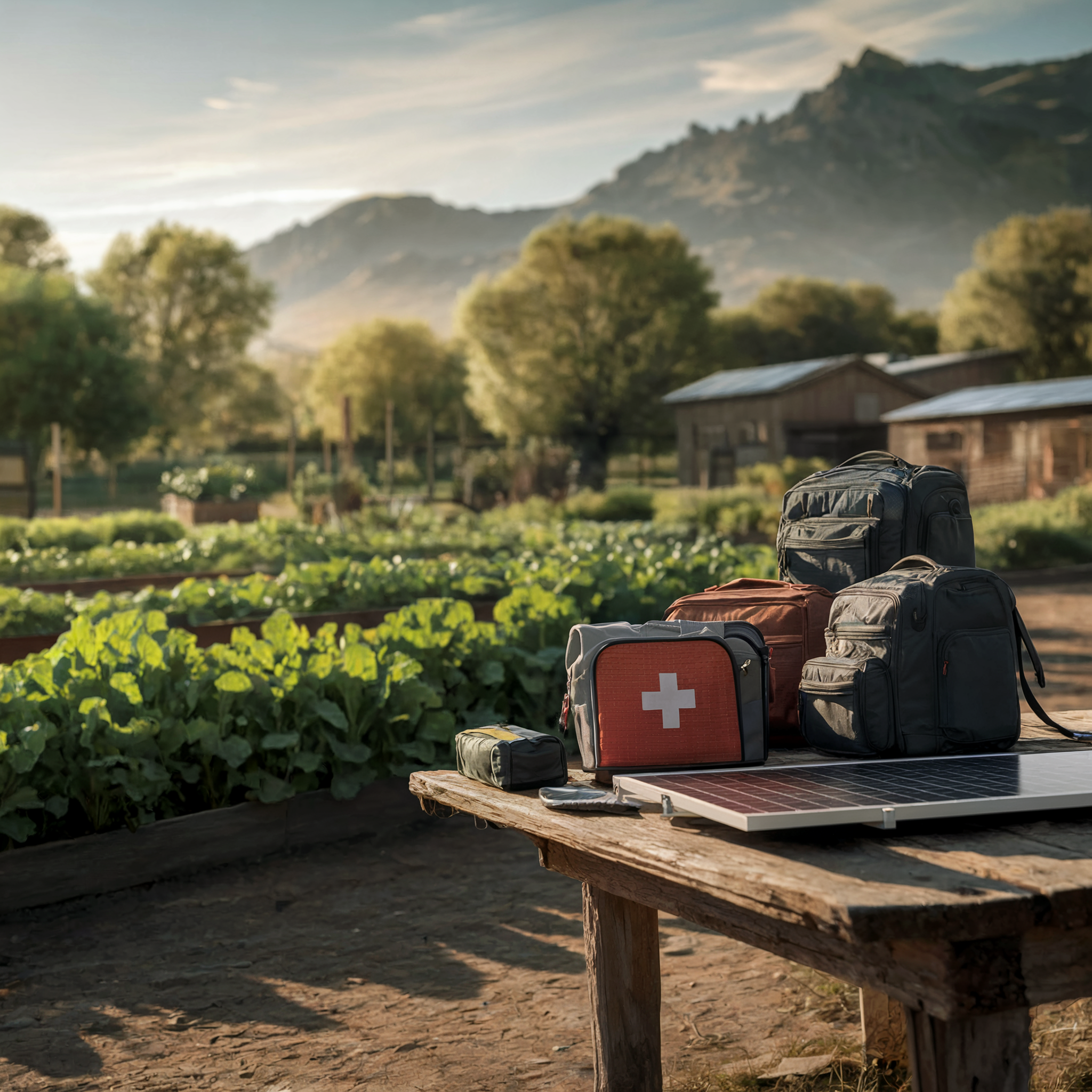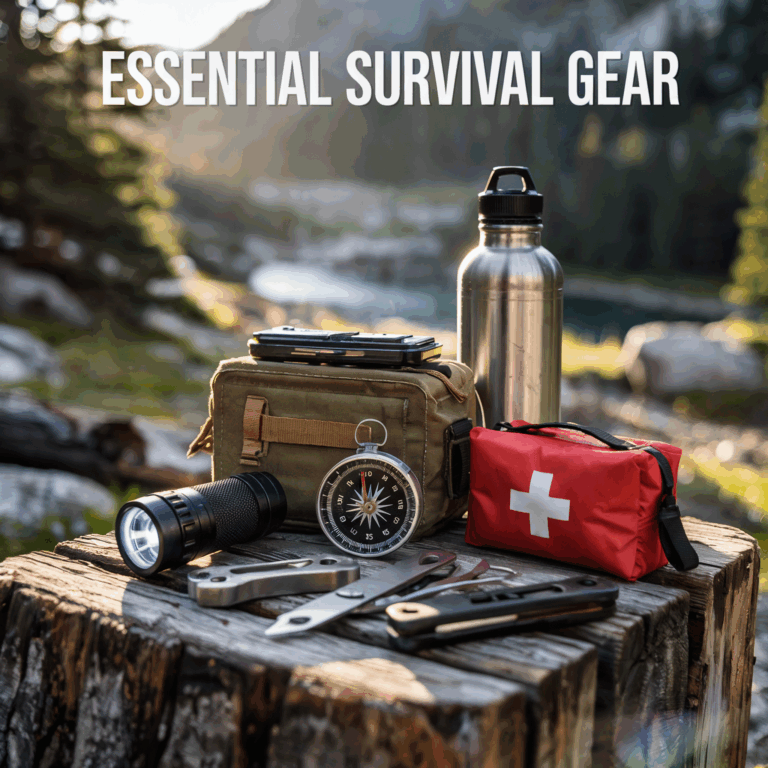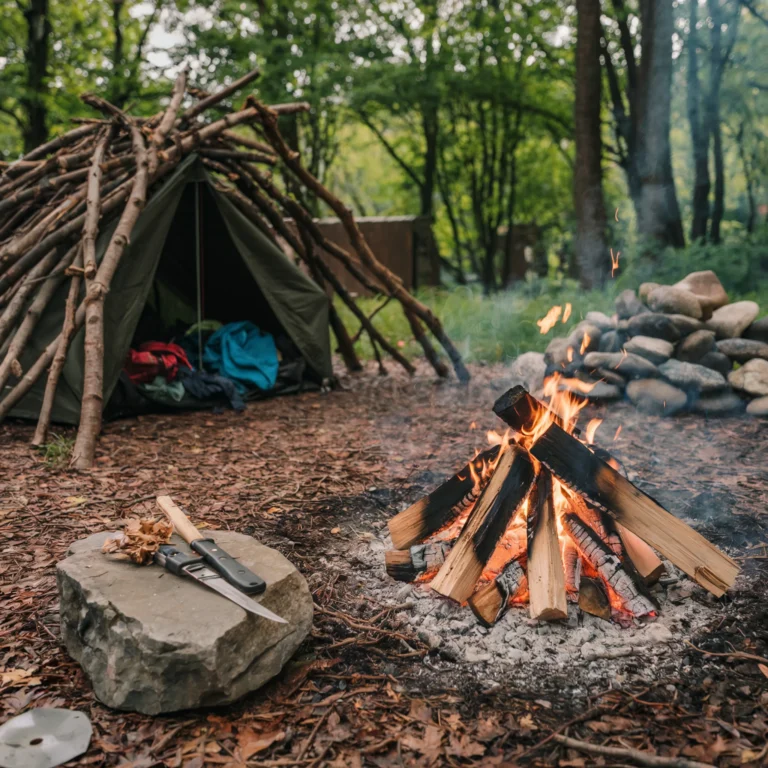We may earn a small commission when you purchase through our affiliate links. This helps fund Quiet Meadows Homesteading and our mission to promote self-reliance. We appreciate your support!
What You Need To Know About Preppers: Homestead Survival
Ever catch yourself wondering if you’re really prepared for the unexpected? I did. I used to think that prepping was all about stockpiling canned beans and bottled water until I felt like I had my own grocery store. However, I learned that being a prepper isn’t just about hoarding supplies—it’s about building a mindset and a lifestyle that keeps you safe, self-reliant, and ready for whatever comes your way.
So, What Is a Prepper, Anyway?
At its core, prepping means planning and acting today to secure your tomorrow. In short, it is not about being paranoid; instead, it is about being smart. A prepper builds a safety net by assembling an emergency kit, learning survival skills, or setting up a homestead that can withstand disruptions. Overall, I see it as a lifestyle where self-reliance meets practical survival skills. And trust me, there’s more to it than just having a bug-out bag (though that’s a great start!).
Getting Started with Your Prepper Journey
I won’t sugarcoat it: stepping into the world of prepping can feel overwhelming at first. But remember, every expert started with just one step—Every Great Homestead Began with a Single Seed.
Begin your journey without feeling swamped:
- Assess Your Risk & Set Realistic Goals
Figure out what risks you might face. Is it natural disasters? Economic downturns? Nuclear war? Or maybe just the desire to be more self-sufficient? Once you know what you’re preparing for, set some clear, achievable goals. It might be as simple as putting together a basic emergency kit or learning how to store food safely. - Build Your Bug-Out Bag
A bug-out bag isn’t just a fancy term—it’s your portable lifeline. Start with the essentials: water, non-perishable food, a first-aid kit, and a few tools. Simplicity can be key. If you need recommendations on what to pack, you can read our post on Preparing the Best Bug-Out Bag & Emergency Kit for Survival. - Food and Water Storage
Prepping means having a plan for when the grocery store isn’t an option. Learn the basics of Food Preservation such as, canning, dehydrating, and even simple fermentation. And don’t underestimate water; setting up a Rainwater Collection System. I will be posting a beginner’s guide to water collection and purification—definitely worth a look if you’re new to this. - Learn Essential Survival Skills
Another key point is learning survival skills; and knowing how to use them. For many years I was part of an organization that focused on teaching outdoor skills such as, First Aid, Navigation, and Wilderness Survival. Start small if you must. Take a local first aid or CPR class. Then, try building a fire or shelter. Each skill you learn adds to your confidence and preparedness.
Avoiding Common Prepping Pitfalls
As a prepper, I often feel the urge to go all out. I learned that overstocking supplies or trying to learn every survival skill at once can quickly lead to burnout. Do you remember Y2K? I foolishly stockpiled a bunch of “non-perishables,”. In time, our rice and instant mashed potatoes attracted moths. That huge mistake taught me that proper storage matters just as much as choosing the right foods. I’ve been there, wasting money on gadgets and food we never got to use. Now, I focus on making small, steady improvements. and I focus on details. I invest in the essentials and build my readiness one step at a time.
Ready for the Occasion
If you’re serious about prepping, chances are you’ll want to invest in quality gear, apparel, and resources. As you progress on your journey, consider checking out some of my favorite tools and guides—carefully selected for their quality and value.
What’s Next?
Prepping is a continuous journey. In fact, with each step you take—from assembling your bug-out bag to learning a new survival skill—you’re not just preparing for emergencies; you’re building a life of resilience and self-reliance. Moreover, in future posts, I’ll dive deeper into specific topics like advanced food preservation techniques, DIY projects for your homestead, and detailed reviews of essential survival gear.
So, what’s your first step on this journey? Drop a comment below and share your thoughts—let’s learn and grow together.
Here’s to building a future where you’re always ready!
Related Resources: Ready.gov is the official government website for Disaster Preparedness.




